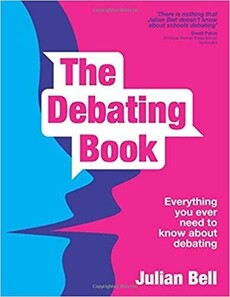
posted 8th March 2024

What is the most annoying thing anyone can say to you?
Pretty high on most people's list must be, 'I know what you're going to say ...'. It's annoying on several different levels. It assumes that you are predictable and are unlikely to have any original thoughts. It makes the person saying it sound like an arrogant know-all. And it destroys the impact of what you were about to say. If they know what you're going to say, what is the point of saying it?
Acting like predictive text for someone else's conversation is probably not a good idea in everyday life. However, in debating it can be a very useful technique. Let's call it 'prebuttal'; getting your rebuttal in early.
Say the motion is This house would abolish private schools. You're the opening proposition. You outline your case. Then you do some prebuttal. 'The opposition will say that private schools provide parents with choice; but they only provide choice for a privileged few who can afford the fees. The opposition will say that private schools promote excellent teaching; but they provide excellent teaching only for a small, already privileged minority, at the cost of taking away excellent teachers from the vast majority of children. The opposition will say that private schools produce much better exam results than state schools; but they produce these results by having double the funding per student of state schools, and by preselecting the most able students.'
See what you did there? If the opposition launch any of those (commonly made) arguments in favour of private schools, they'll already have been holed below the waterline by your attacks on them. Uppermost in the minds of the audience and the judge will be not their arguments but your critique of their arguments. The opposition will have to spend valuable time responding to your attacks before they start building their case. What's more, you can redouble the attacks through points of information by saying something like, 'As I have already said, private schools do not provide real choice because ...'.
Telling someone what they're going to say and pointing out why they are wrong is not a good idea in real life, if you want to have any friends. It can, however, be a powerful tactic in debate. It only really works for opening speeches: first proposition and first opposition. If you're using it for first opposition, only use it for arguments that haven't yet been made by first proposition, but might be made by second proposition.



